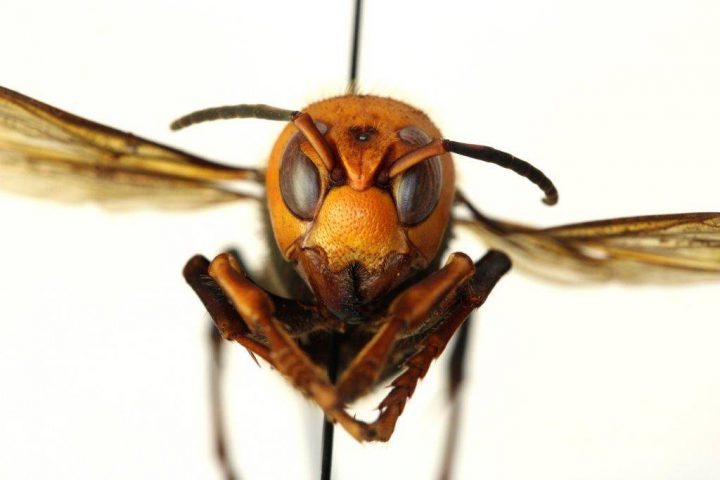Asian Giant hornets, or “murder hornets“, have been found in British Columbia and Washington State, but experts said it’s not likely they will find their way to Saskatchewan.

There are about 20 species of hornets around the world. The Asian Giant hornet is the largest at just under two inches long.
There have been instances where the painful sting can kill people, but it typically takes multiple stings to be deadly.
“It’s not nearly as venomous as many other wasps, let alone many other insects,” University of Saskatchewan entomology researcher Sean Prager said.

Get daily National news
“It just so happens they’re big and scary.”
They don’t attack people unless threatened, but bees are at a greater risk.
Apis cerana japonica, better known as the Japanese honey bee, are prey for Asian Giant hornets. They have evolved to defend themselves against their much larger enemy.
“Japanese honey bees swarm the wasps and cook them,” Prager explained.
“They basically tolerate higher temperatures than the wasps can and they can shake themselves which makes everything very hot. They can cook the swarm and cook the wasp until the wasp dies.”
Prager adds European honey bees found in North America haven’t evolved to defend themselves against Asian Giant hornets. He still isn’t overly concerned though, adding experts dealt with the few found in North America so far.
It’s unlikely to ever see these hornets in Saskatchewan and it’s not known if they could survive the Prairie climate.
“It may only be that Cypress Hills would be suitable for a summer habitat, though the winters may be too much for it to survive if it even came east,” Royal Saskatchewan Museum curator of invertebrate zoology Cory Sheffield said.
In the slight chance Asian Murder Hornets travelled to Saskatchewan, people wouldn’t be threatened. Beekeepers would be the main group needing to prepare.
“If we started finding them here, I suppose honey beekeepers would have to be a little more vigilant about what they would do, but I would think if they were to be here we would have a pretty good idea that they’re coming,” Prager said.


Comments
Want to discuss? Please read our Commenting Policy first.